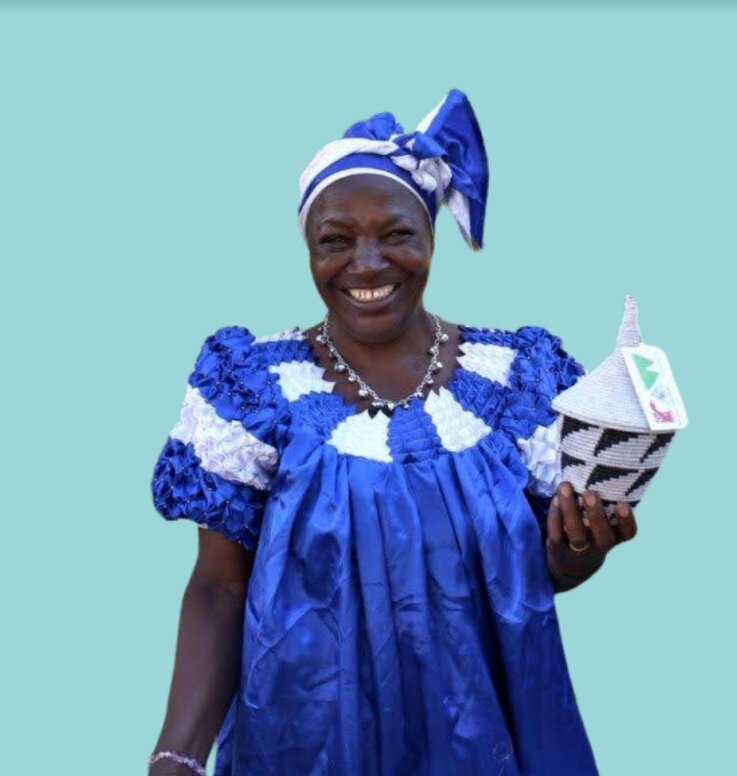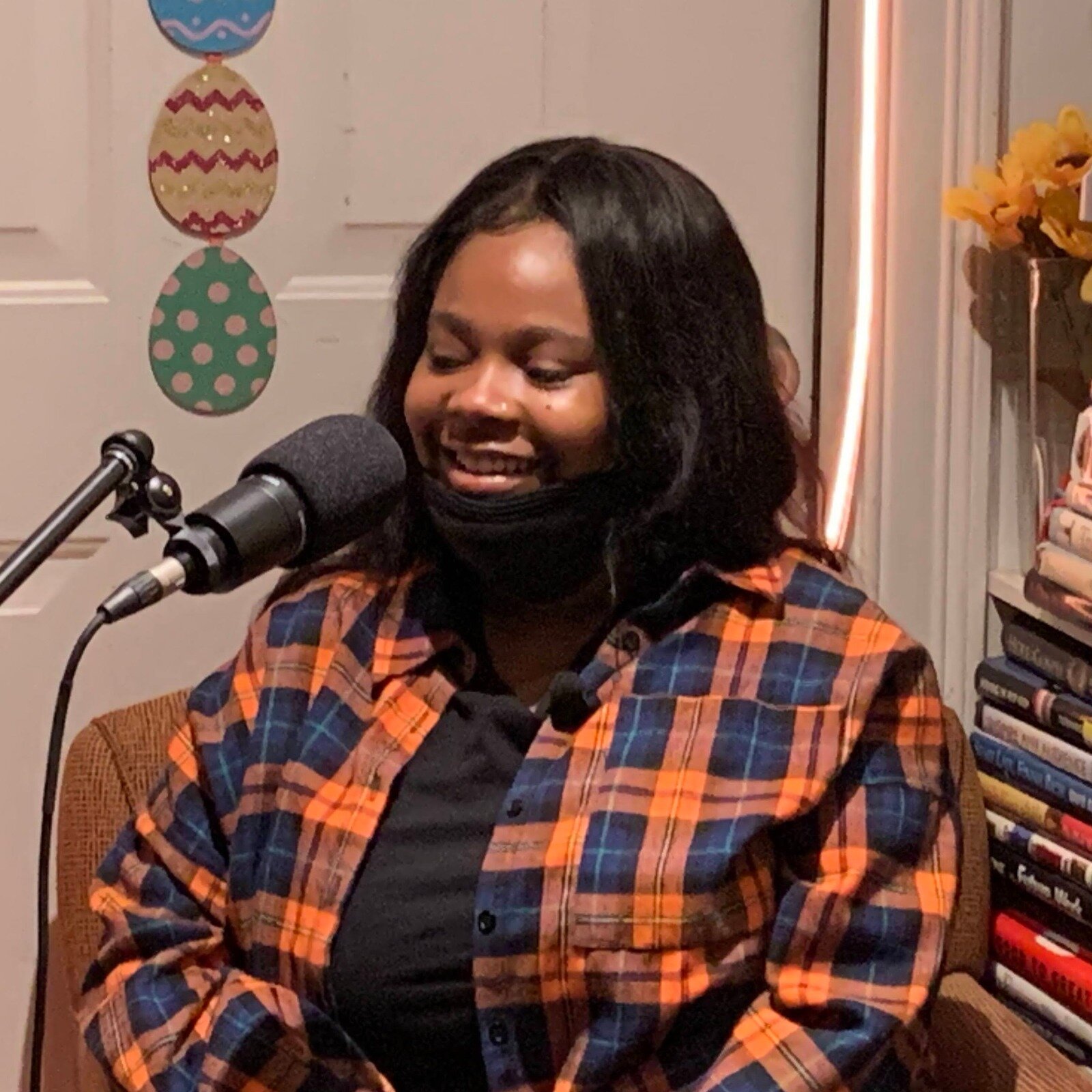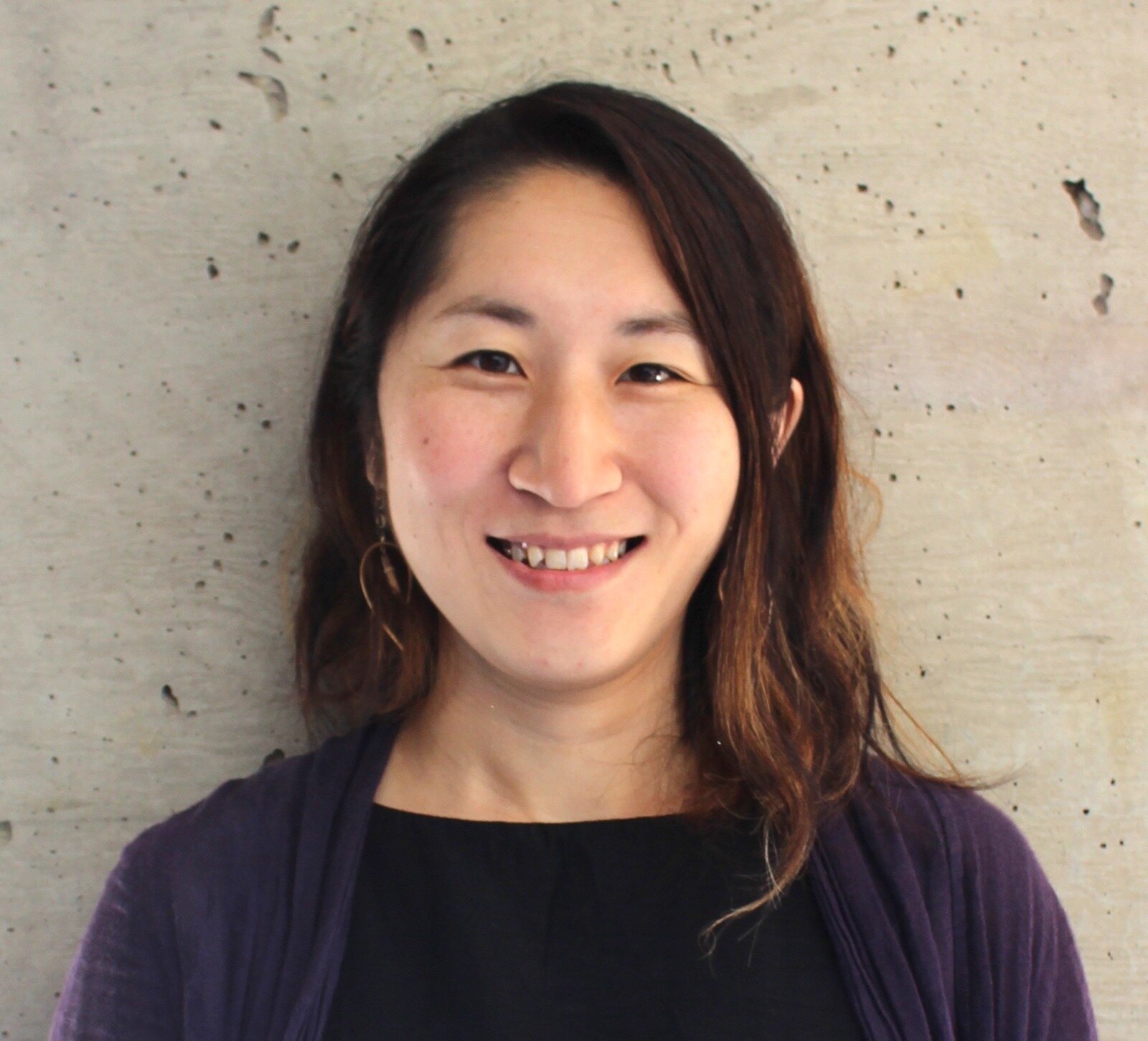2021.4 Dear Grandmother,
Dear Grandmother,
I’m grateful that you have cared for me from the first day I was born. I’ve been with you, struggled with you. I give you a hard time; yes, that’s you who I know. You are my best friend. By telling your story and featuring your baskets, I am trying to tell you how you have had a positive impact and helped who I am today.
The story of your life journey is something like weaving a basket.
It needs patience but brings something beautiful as we go on.
So, I don’t want people to think about your baskets as just a basket, but why you make them.
You were an orphan, and you really didn’t have a place where you ‘belonged’. I understand you were often sad and felt alone in the world.
I don’t even know what happened. It seems that you are thinking about the loss of your family and things you saw during the war.
I guess one of the reasons you love making the baskets is that it helps you cope with everything you went through. It’s kind of like therapy.
Starting a basket is the most difficult step, but you cannot avoid it. Beginning with a bundle of 8 natural willow reeds, you taper the ends of the reed bundle, knot a single raffia strand about an inch from the end, and wrap the raffia tail back toward the end. Turning the end onto itself and binding the two together, the first coil is formed. As a basket needs a firm foundation to build up, life does so, too. With your strength and resilience, together with your powerful and positive energy, you have always kept who you are.
As music and dance are rooted in you, so is farming. Yes, corn is the first thing I would relate to you because not only you love eating it, but also there is a deeper meaning behind it. In Africa, many women couldn’t afford powder for baby milk, so they turn corn into powder to make milk. It is hard work, so women came together to help each other.
You said that all your children, including me, even though I don’t remember, drank corn milk. That was how we were raised. Six of your 11 children are still living in Africa. So, it fills your heart with joy to be able to speak to your family and hear their news.
You value your religion along with your family. As an orphan, you needed to ask the woman you were living with at that time to be a guardian to get baptized with the other children. When you get baptized, you get to chose your own Christian name from a book, which is where the name ‘Patricia” came from.
So the life goes on, so as basket making. Placing the last base coil on top of the previous row and continuing to enlarge the bowl, you slowly build up the height of the basket. As you draw the needle under the coil and up towards you, there is a steady rhythm to your stitches. A stitch by stitch….. Your journey in the US, also moves forward step by step.
You are strong given everything that that you have gone through.
You do everything by yourself.
You do everything out of your own heart.
You like being in America. Here, you have your own say, and that is important to you. America changed your life because back in Africa, you had no speech at all.
Through basket making, you express your own voice. And, because you do so, I am learning not to be silent. You gave me the chance to make my own decisions and my own future.
I am graduating from high school soon. You have motivated me to get my education and I think education allows me to give you the future you deserve.
Conical lid making is the last step for basket making. Starting with the first coil and working down from the peak, you slowly increase the coils of the lid to fit the dimension of the bowl. But you know what? Our life journey keeps continuing.
Agaseke is a symbol of peace, goodwill, and luck. The skills which you learned by sitting next to your mother as a 7 or 8 years girl, recalled and applied for the first time after arriving in the U.S; that now you are sharing with me.
I promise that I will try my best to carry goodwill, which is the spirit of Agaseke you passed me on, by pursuing my education and dreams.
Now that I’ve told a portion of your story, Grandmother, I want to finish by saying ….
You fought for my life since the day I was born. There is nothing I can give you to thank you for all you have done for me. But I swear that I will never leave your side and I will continue to thank you every day and keep you happy. I will forever keep you in my heart.
Love always, Sayi


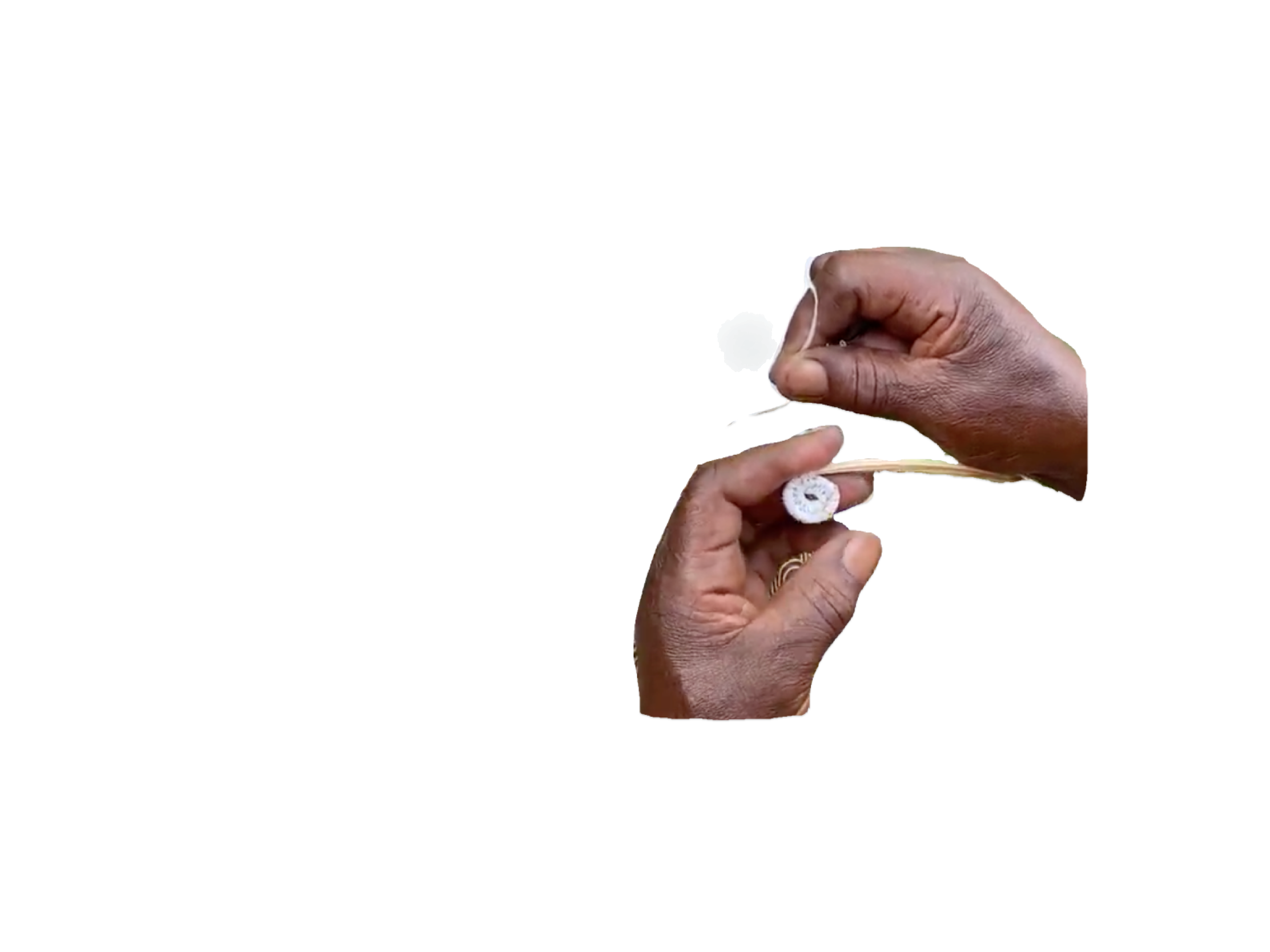
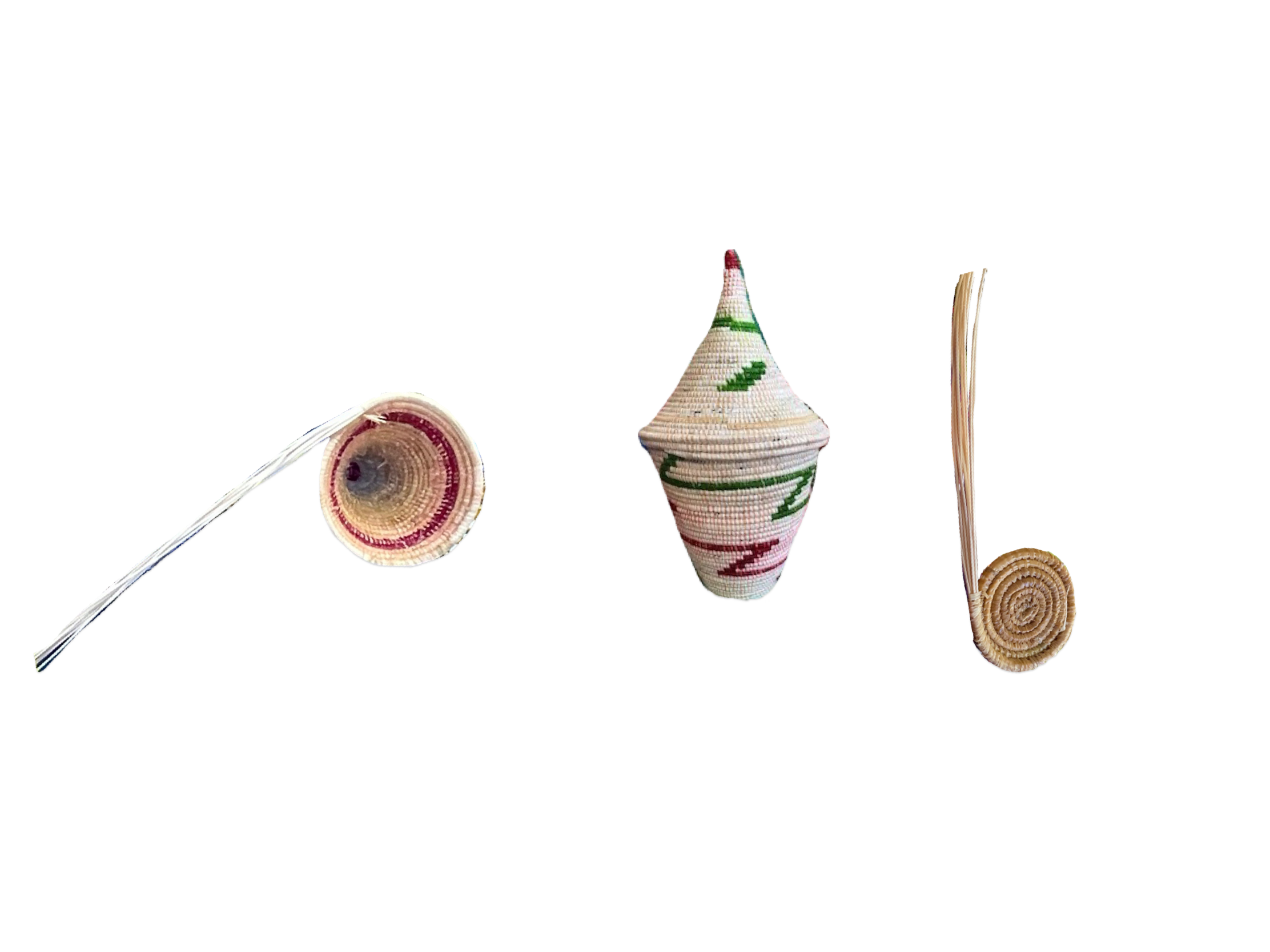
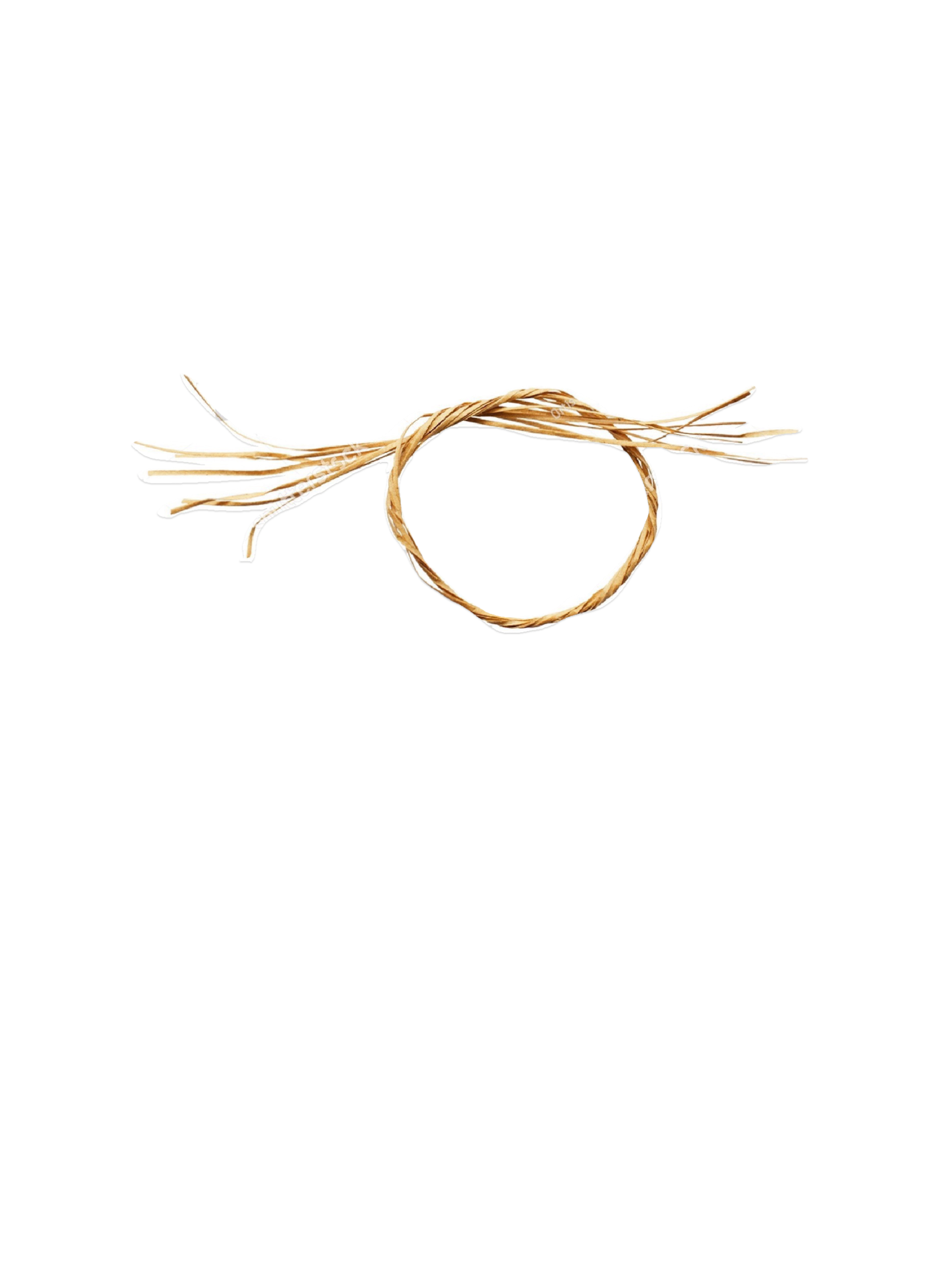
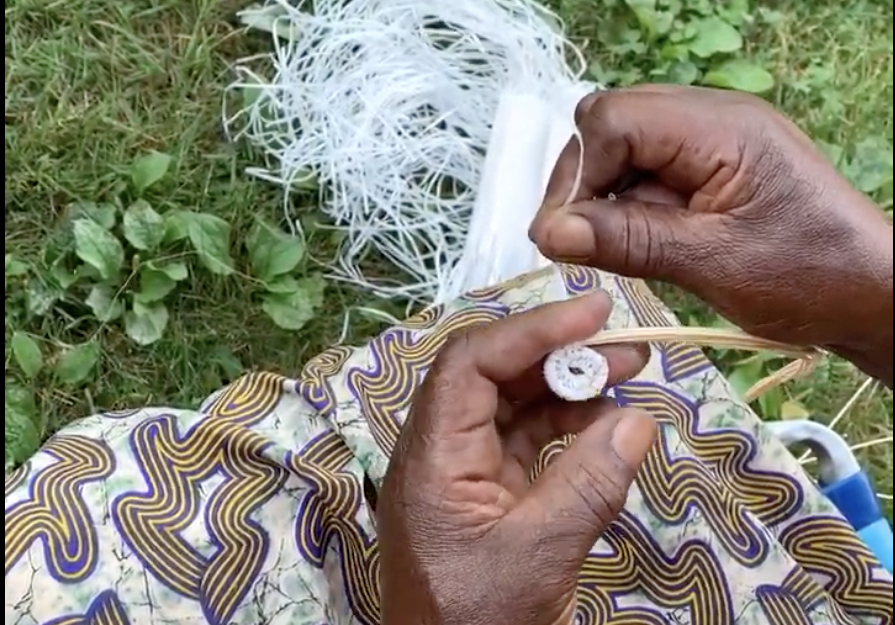
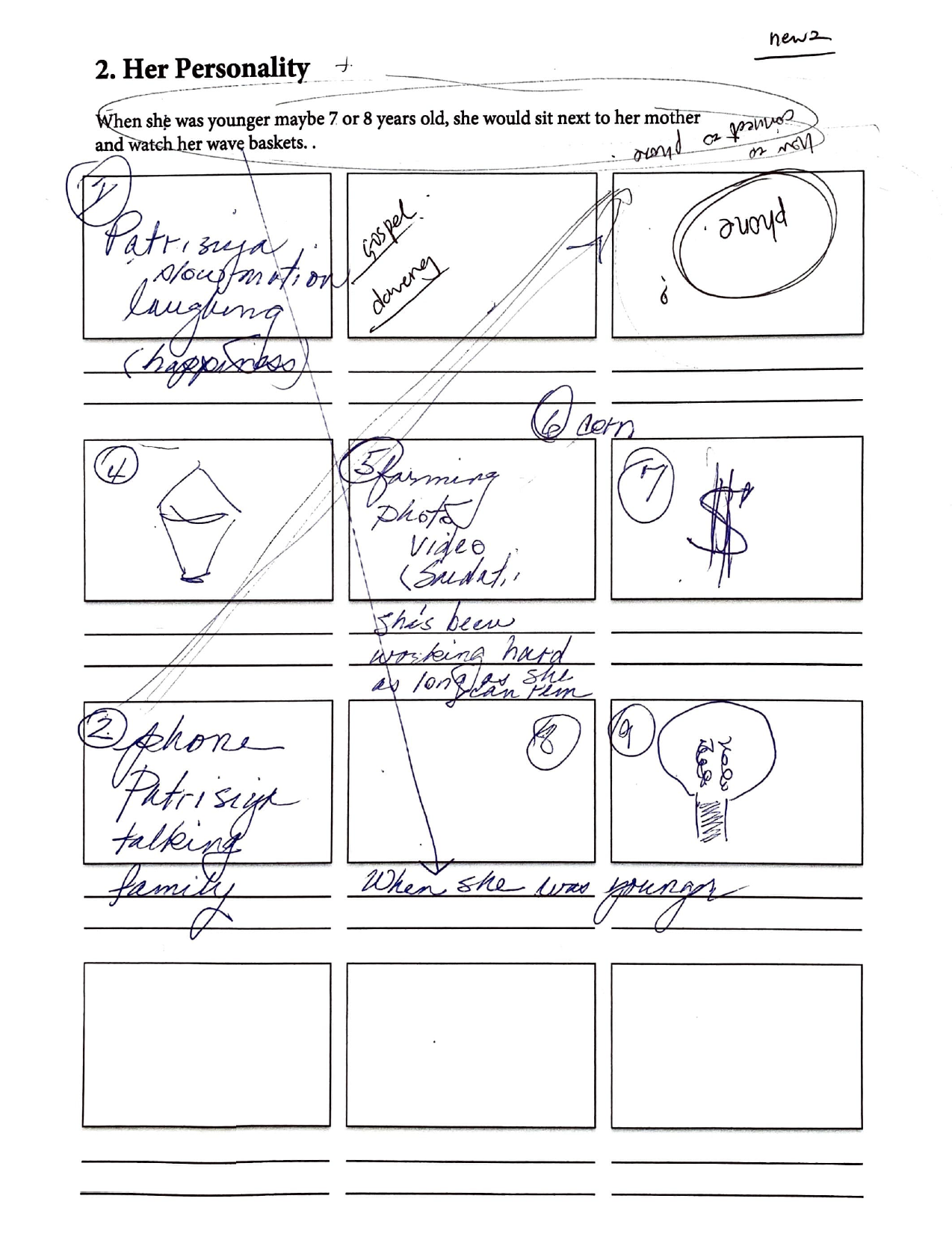
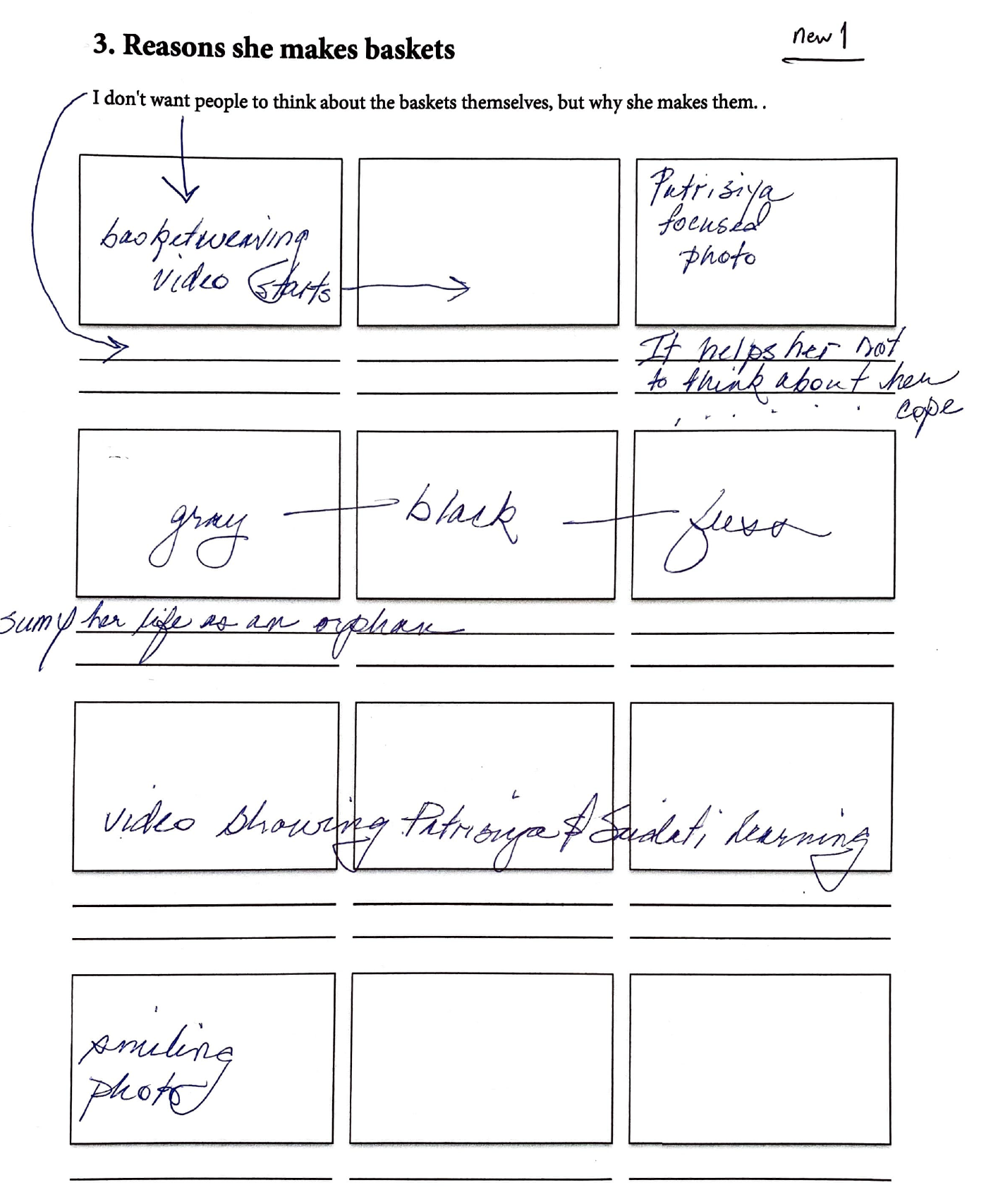
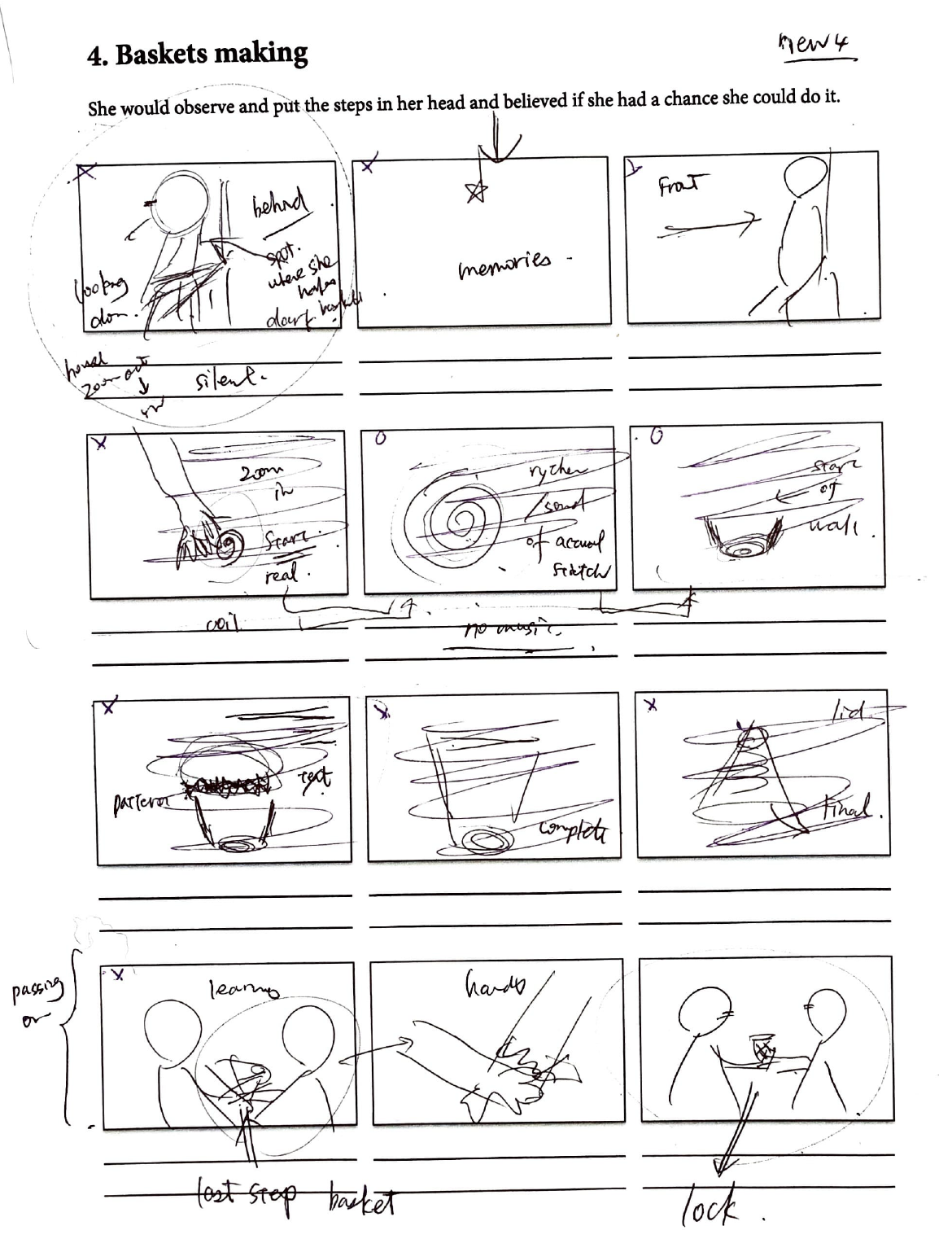
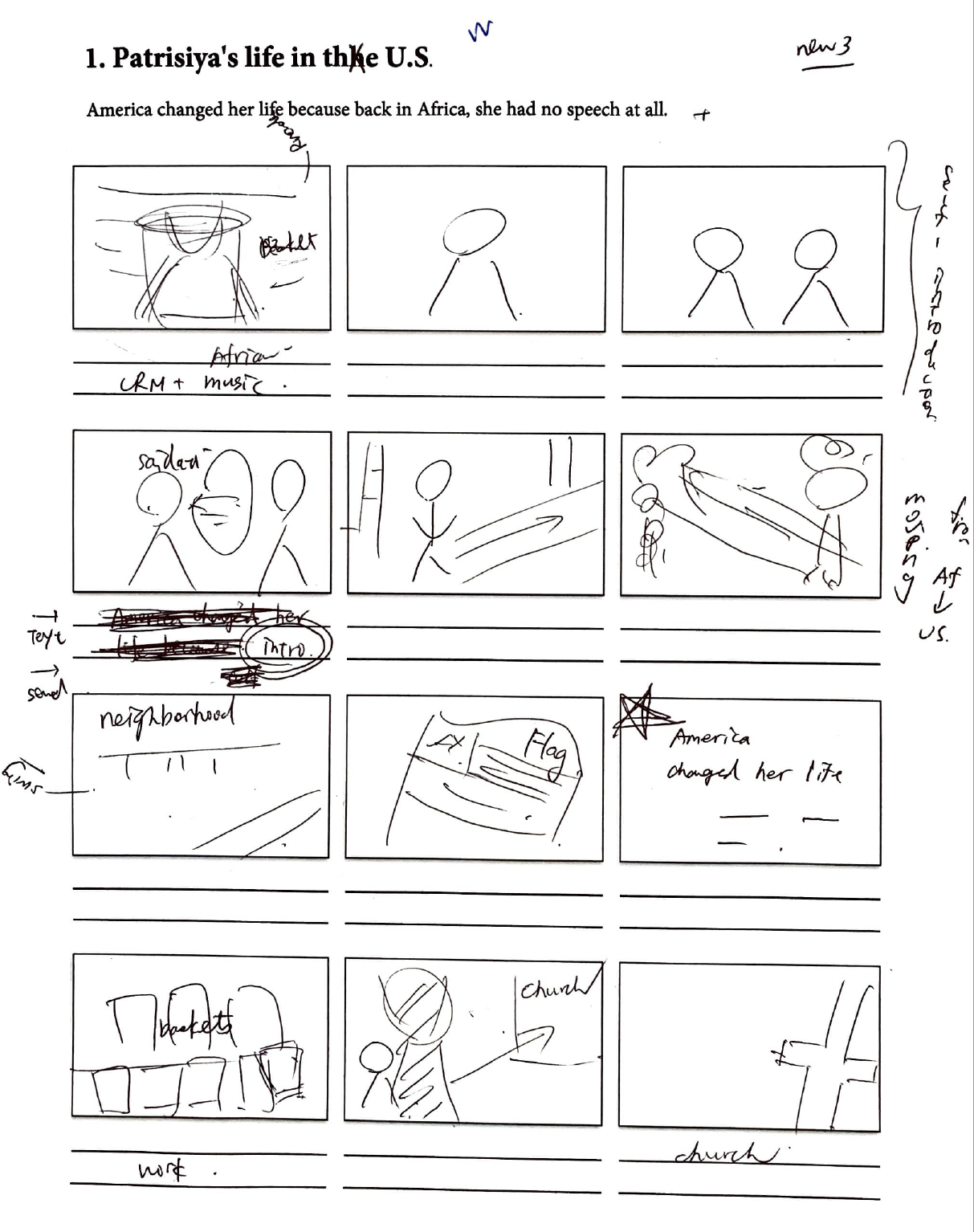
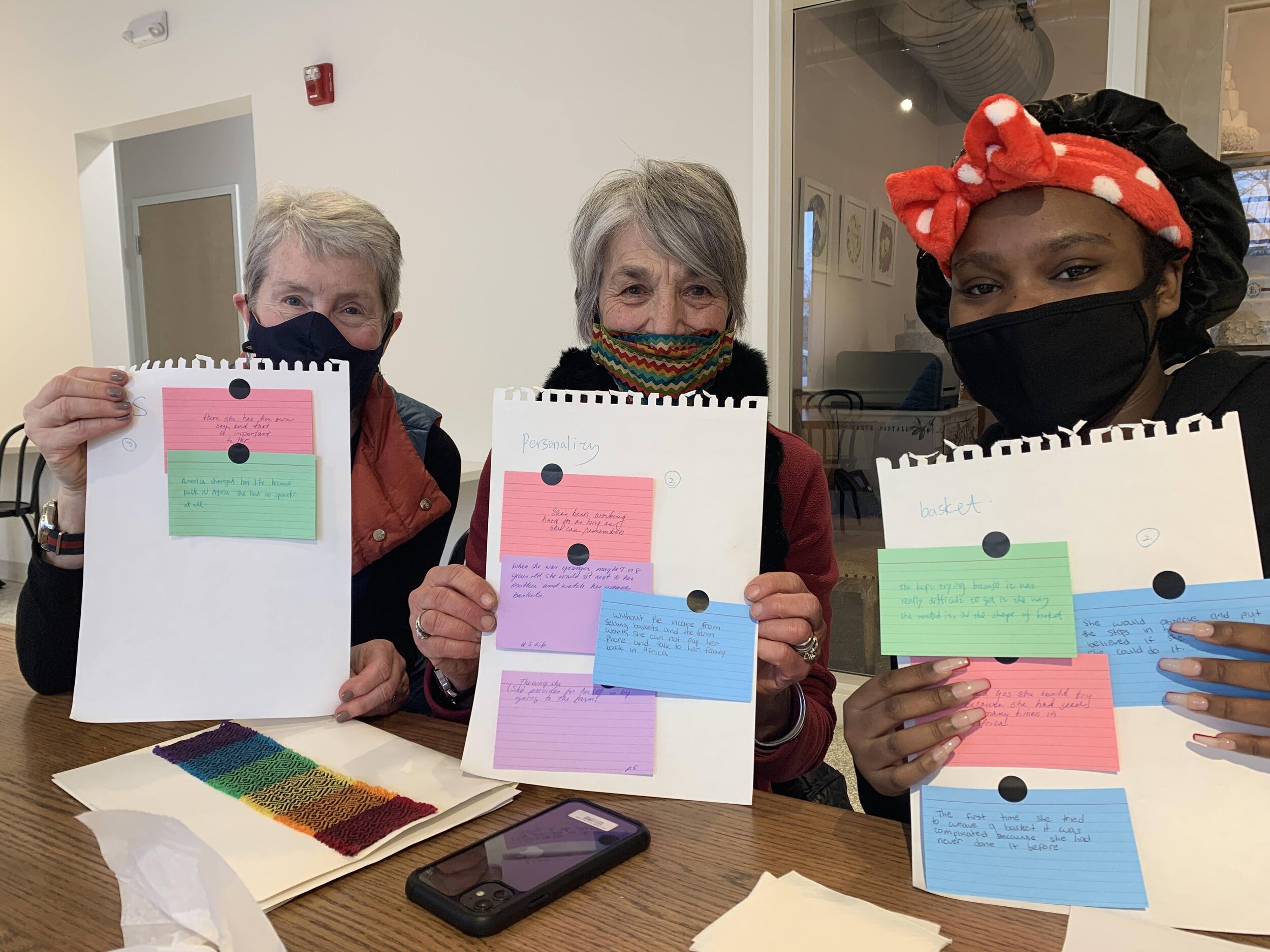
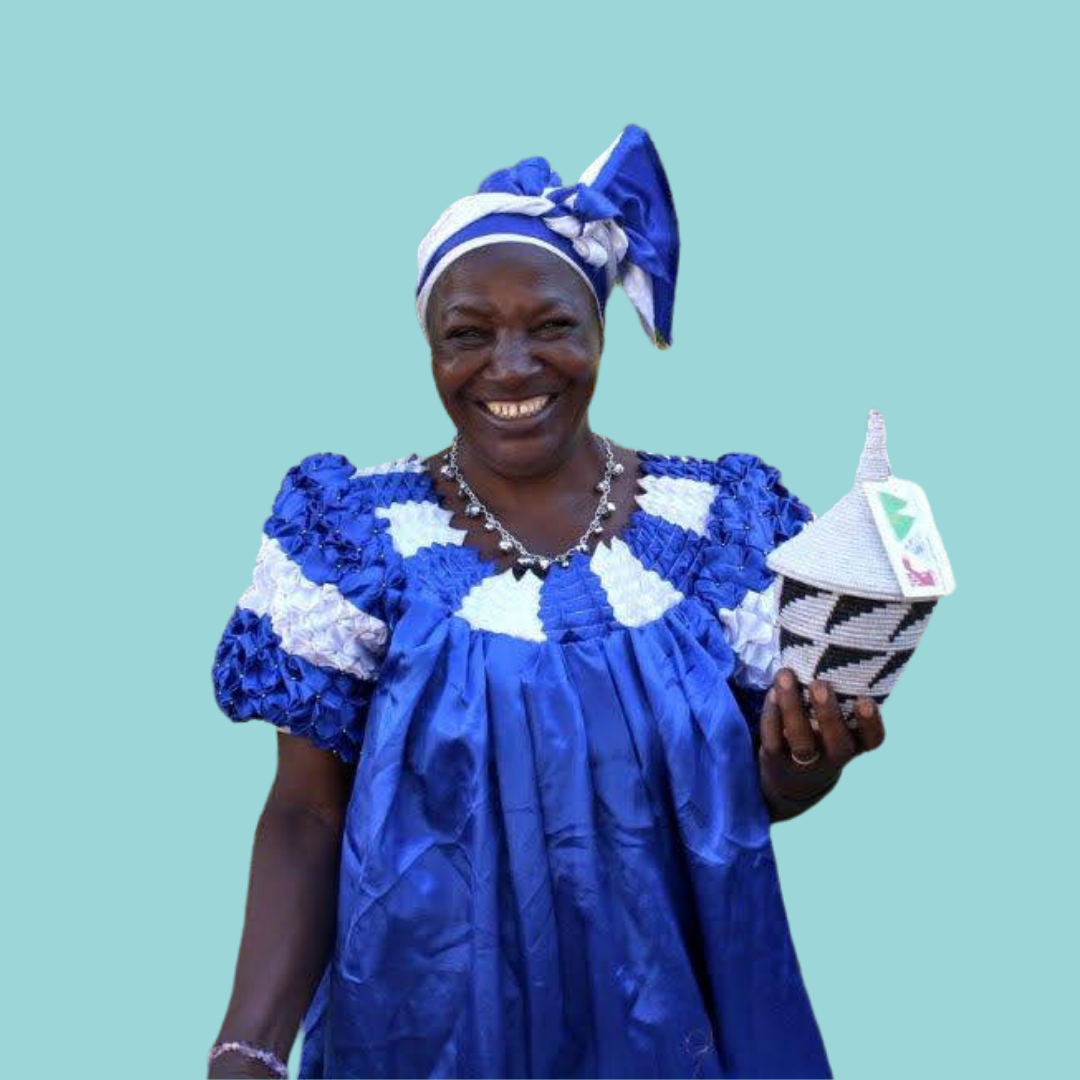
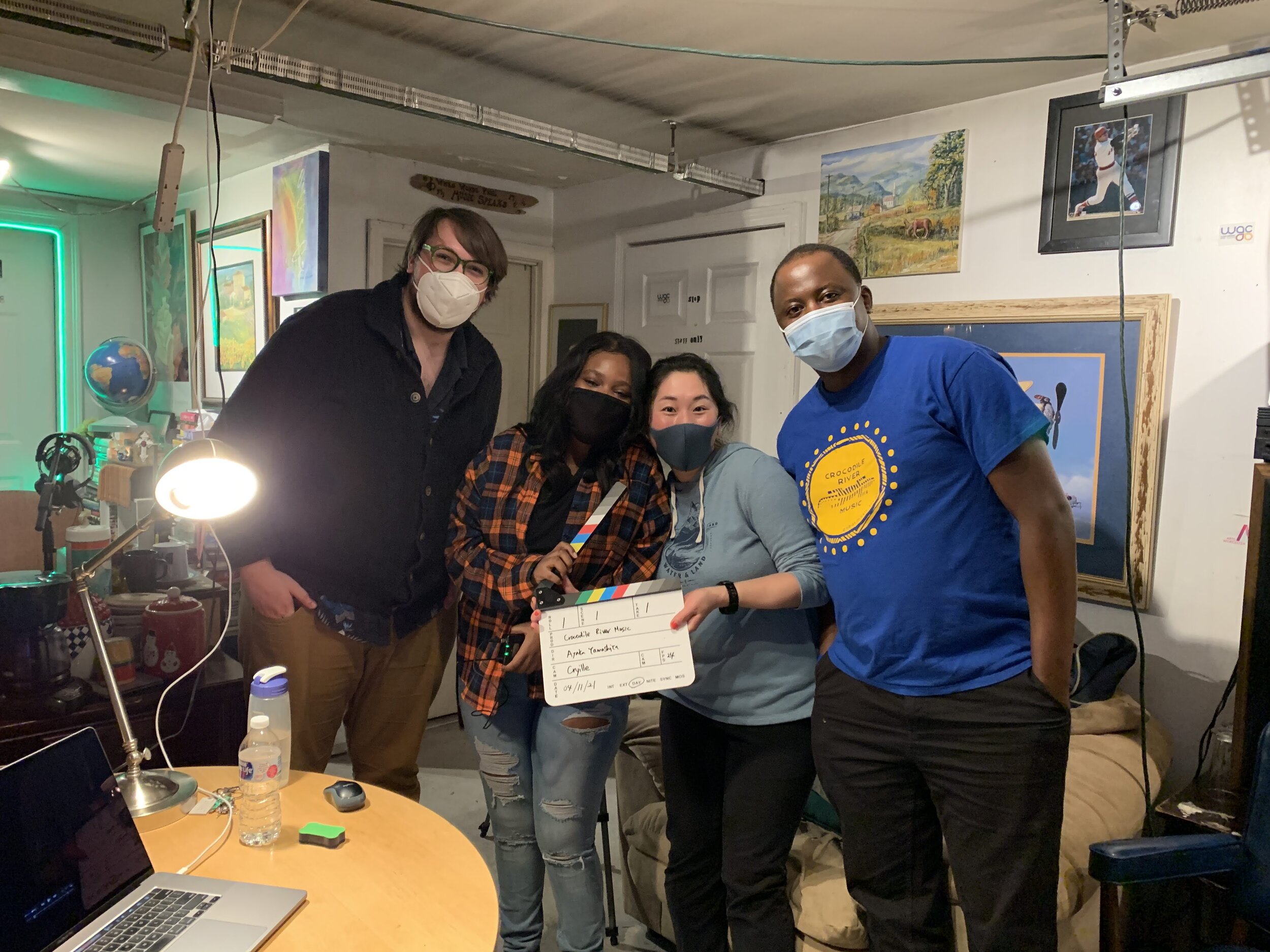
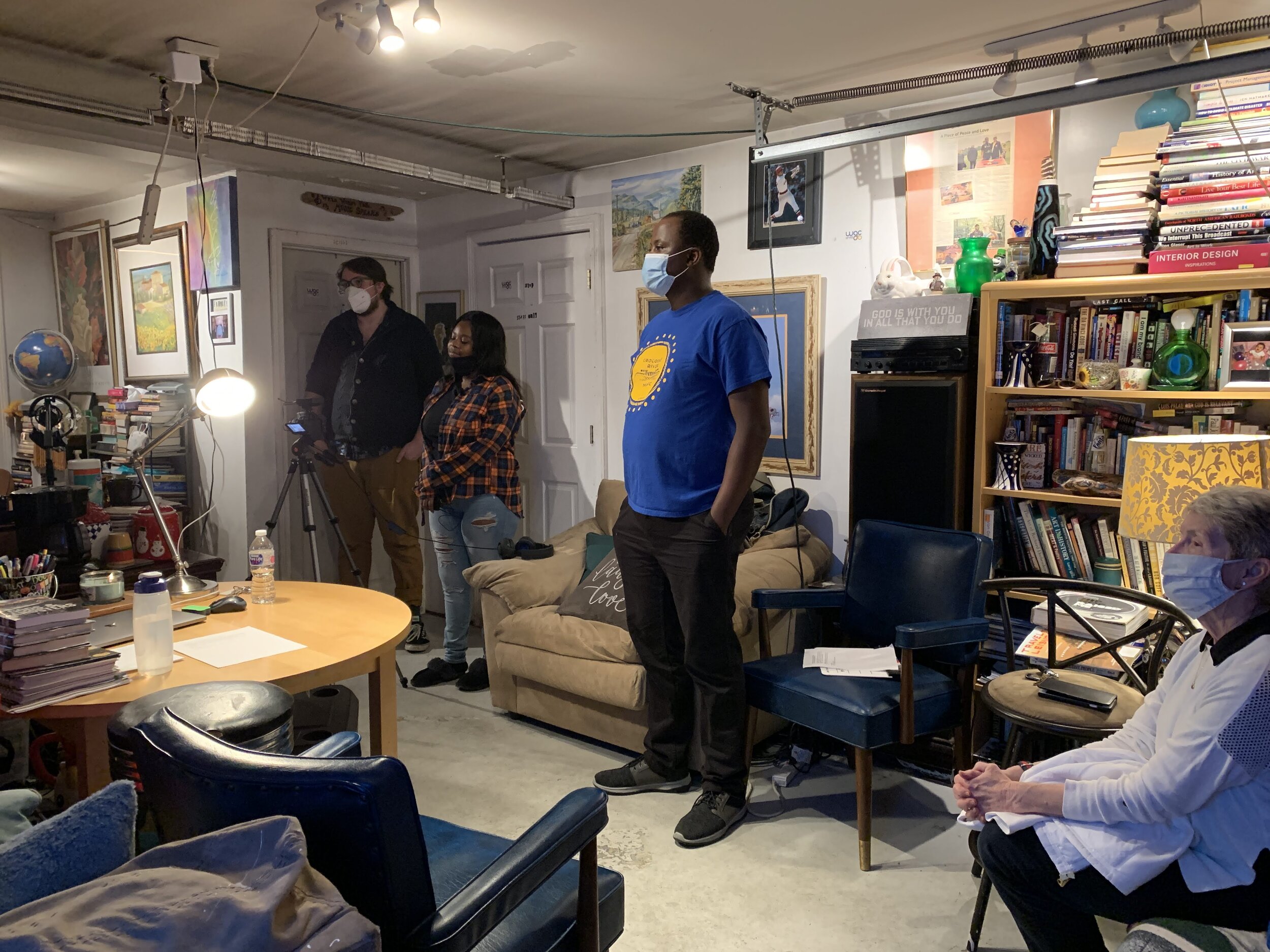
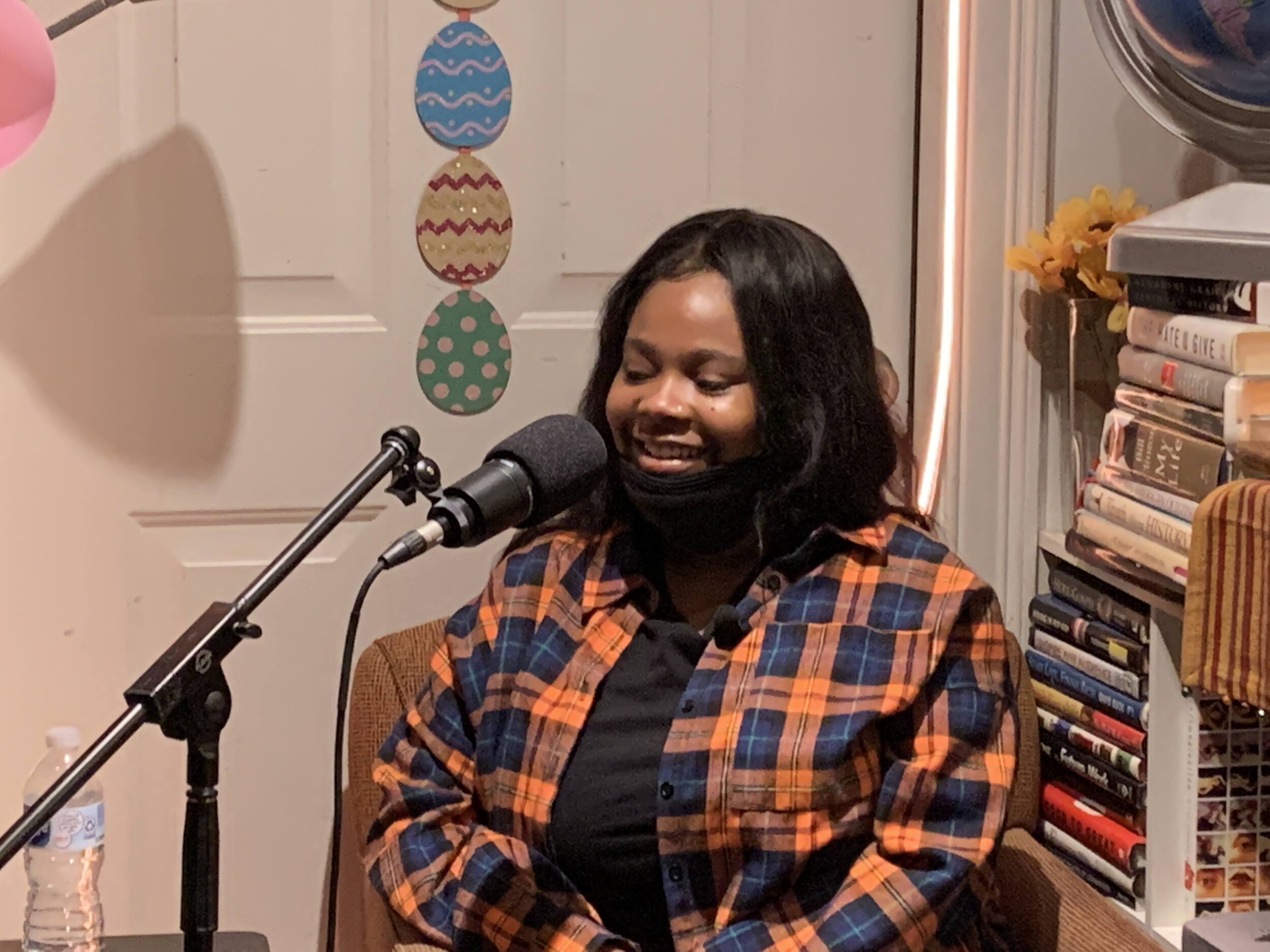
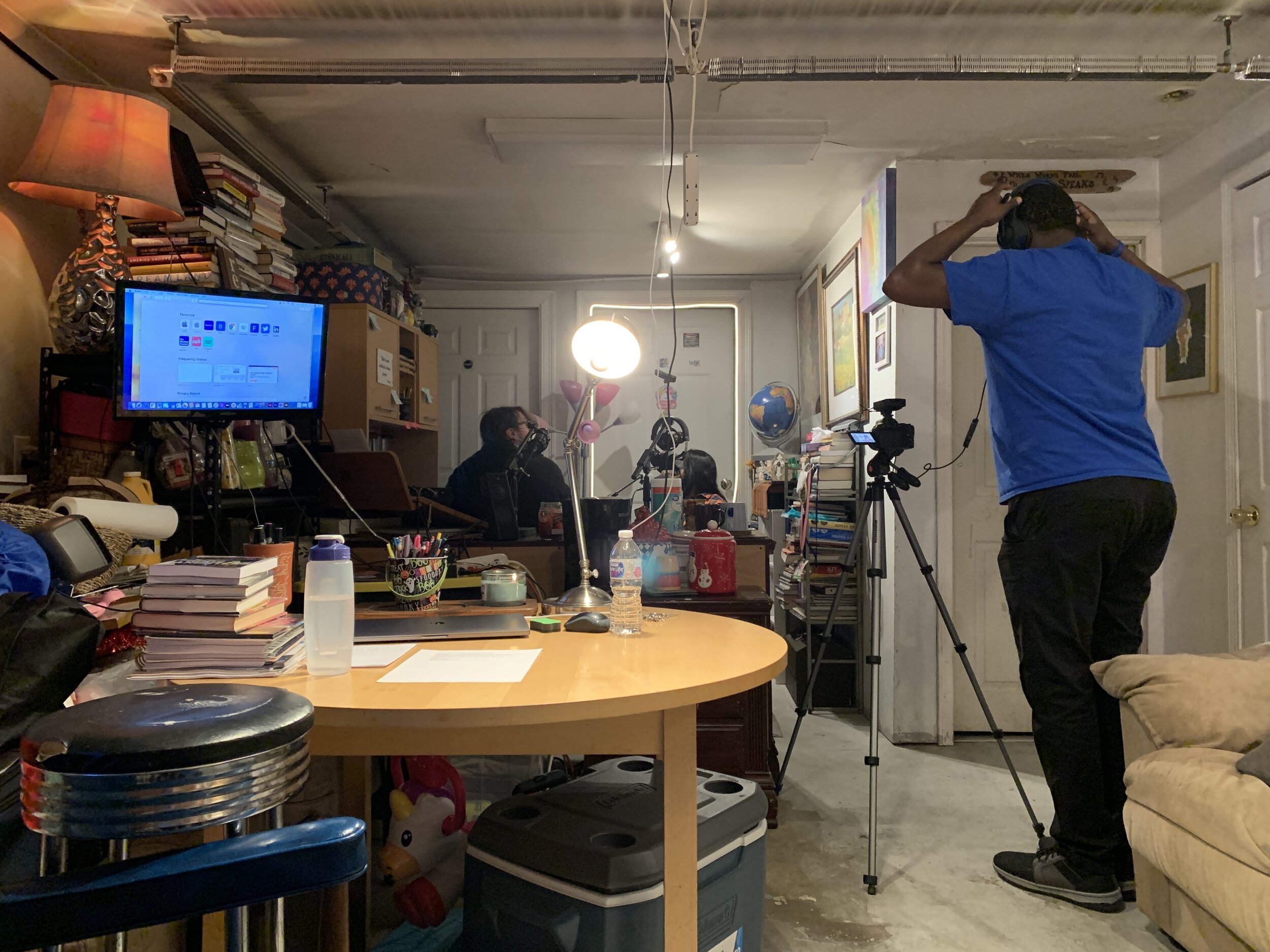
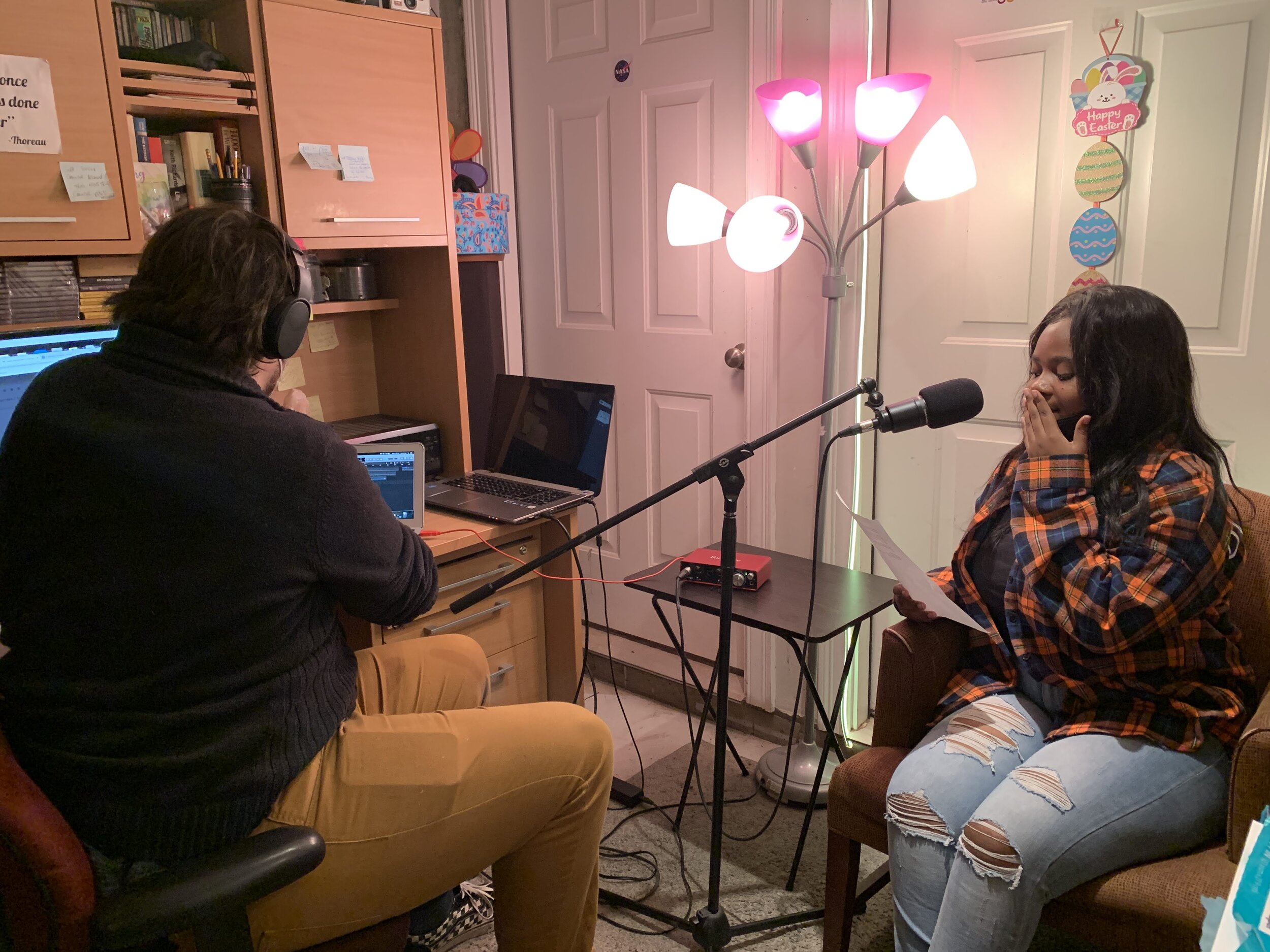
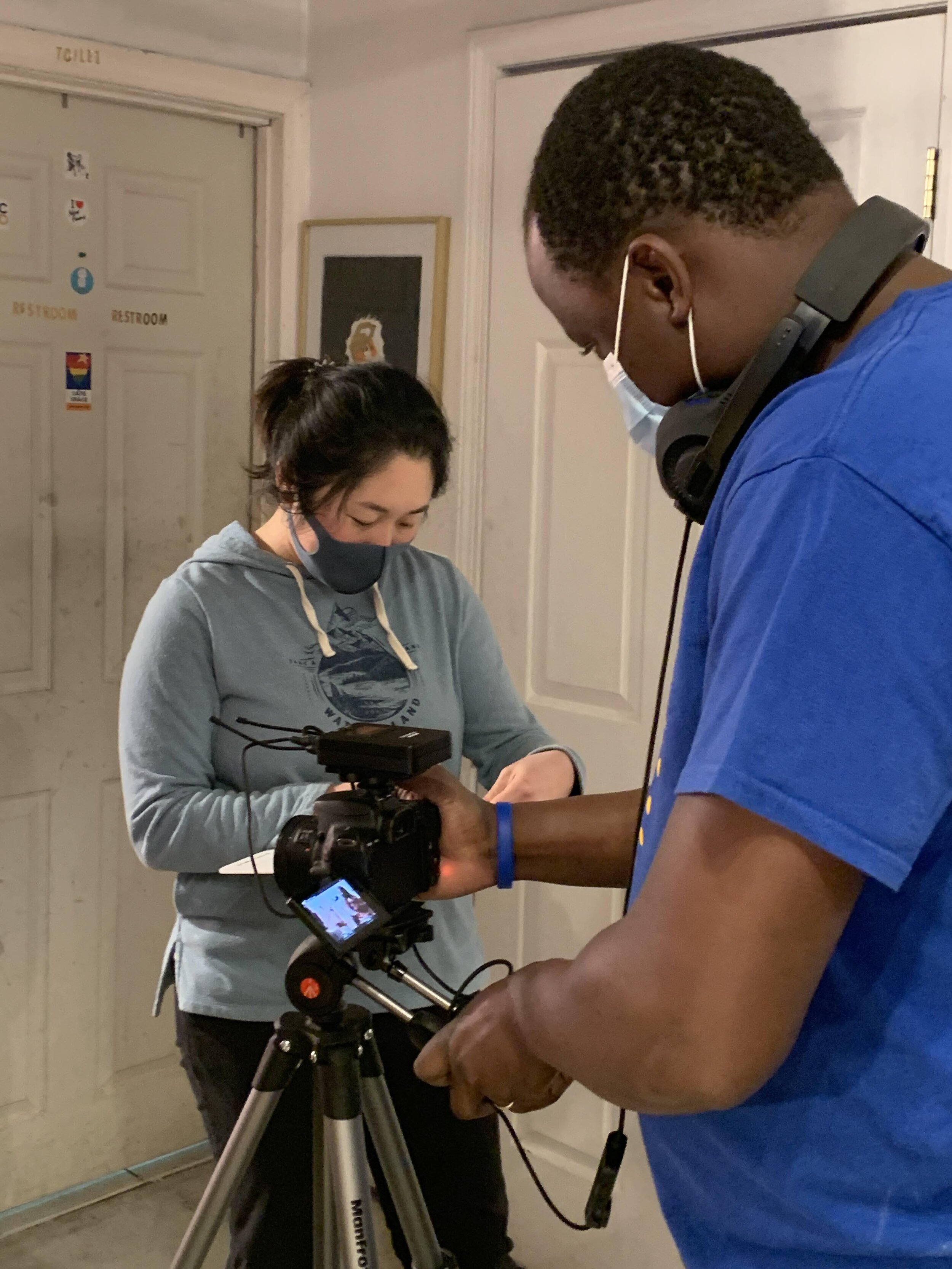
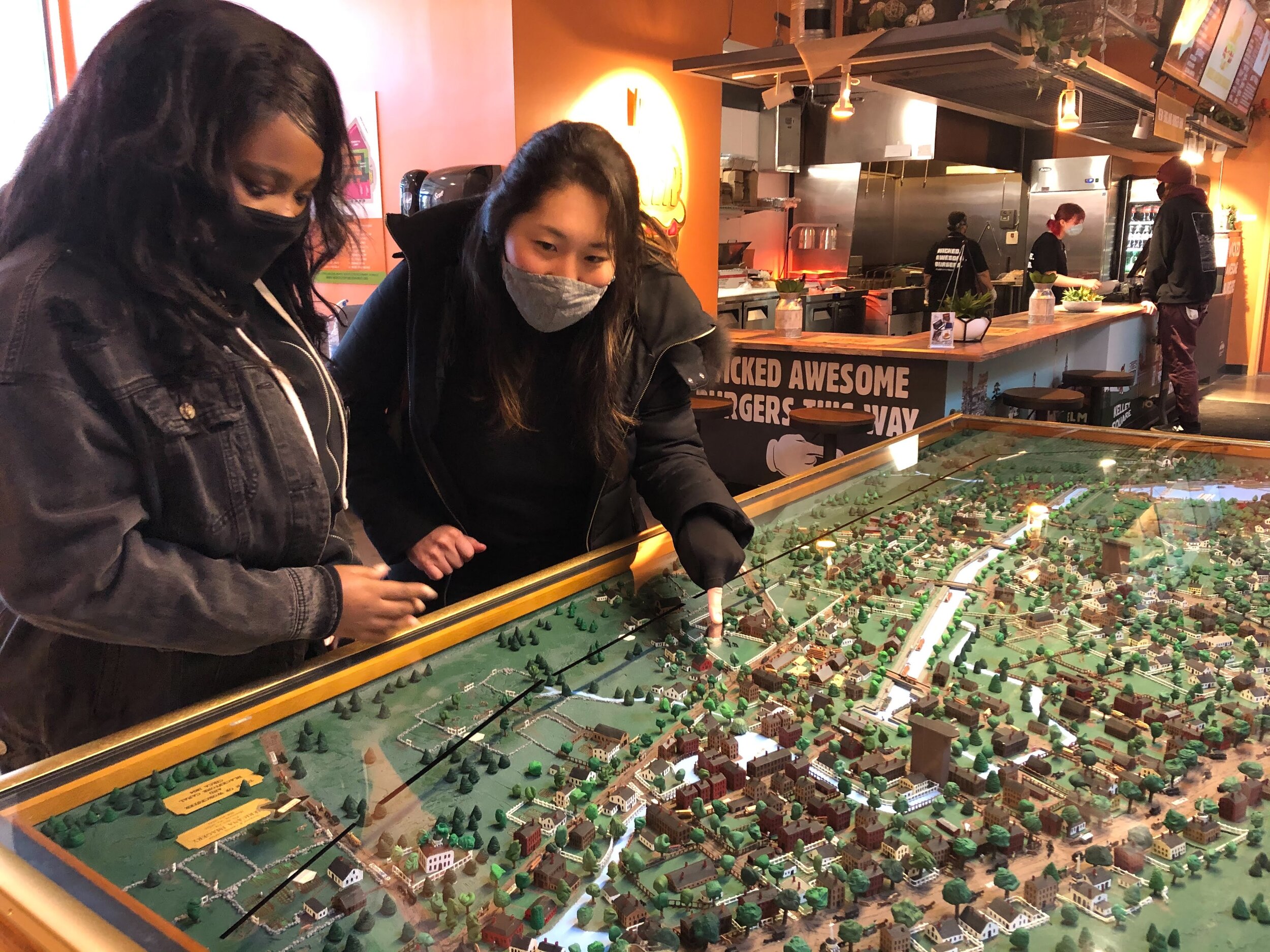
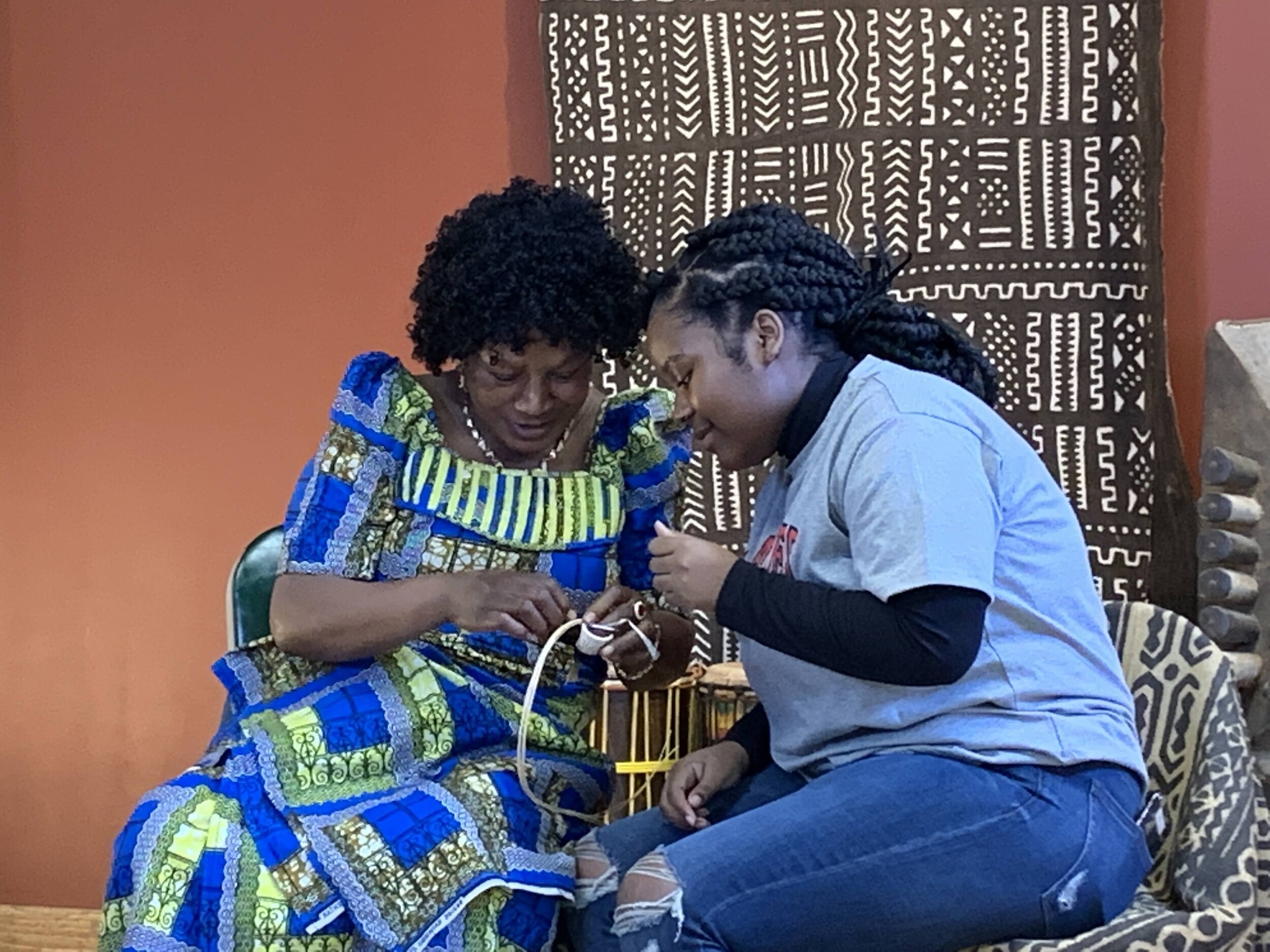
This 10-month digital storytelling project for Rwandan Refugee youth emphasizes the importance of story and video-making processes. This storyboard is the result of 15 story-making workshops. This particular storyboard edition employs the presentation style of the original storyboard made with still images and short phone video clips. You can find the full script too.
Sharing the storyboard to the general public when we are still in the middle of the production is an experiment in itself and a proposal for rethinking film production processes.
We plan three more steps; narration recording, additional footage shooting, and music creation. We aim to produce the video as a final outcome of the project in late May 2021.
To stay updated and learn more visit: https://www.deargrandmother.net/
Official Trailer
Artist Bio
Patricia Kayobera is an African Agaseke (basket)-making master who had experienced three genocides in Rwanda before coming to the U.S. in 2009. Nisa Saidati Nisubreko, a granddaughter of Patricia, is a senior at North High school in Worcester. Ayaka Yamashita, a Fulbright graduate student in Design Studies (Risk and Resilience) at Harvard Graduate School of Design (GSD), met them when she was the GSD community service fellow. She is a co-founder and director of EDAYA and She holds a Bachelor of Agriculture (International Sustainable Agriculture Development) and Master of Health Sciences (Human Ecology) from the University of Tokyo.
A Film by: Patricia Kayobera, Nisa Saidati Nisubreko, Ayaka Yamashita
Patricia Kayobera, Nisa Saidati Nisubreko
Directed by: Ayaka Yamashita
Director of Photography: Cyrille Vincent
Production Assistant: Jimmy Jackson
Video edited by: Solidarty
Story Editors: Ellen Ferrante, Joan Kariko
Music: Thierno Camara, Zach Combs
Research Consultant: Marino Fernandes, Ph.D.
Website & Storyboard Design: Ayaka Yamashita
Co-produced by: Crocodile River Music and Refugee Artisans of Worcester
Special thanks to Worcester Cultural Coalition, Harvard Graduate School of Design Community Service Fellowship, Harvard GSD Kirkland Gallery



